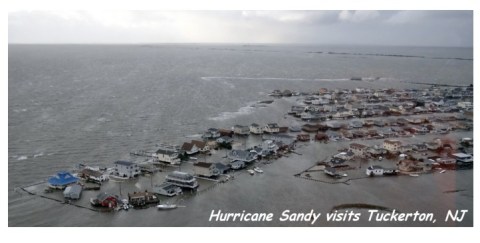Minced Religion
December 30, 2012
 I was raised a Roman Catholic but left the church when I could not sincerely defend its beliefs. Blame it on reading, blame it on college, blame it on science, it doesn’t matter, religious faith, whatever it is, eluded me.
I was raised a Roman Catholic but left the church when I could not sincerely defend its beliefs. Blame it on reading, blame it on college, blame it on science, it doesn’t matter, religious faith, whatever it is, eluded me.
And it eluded me from a young age. The questions I asked about mysterious things were never adequately answered by nuns, priest or parents. Even now I don’t understand how anyone could come to believe what is fundamentally unbelievable to them— to embrace the substance of ” things hoped for, the evidence of things not seen,” as the Bible says.
Can’t get there from here, I say; by God’s grace, say others, resorting to futility. In any case holiness and spirituality, and our path to and through them, have little to do with religion. Religion is something else.
Part of my difficulty with religious faith is that faiths are as prolific and varied as the stuff in the cereal aisle of the local super-market, from old fashioned Kellogg’s Corn Flakes to faddish upstarts like Ralston’s Batman cereal.
Even monotheists have managed to split their god to smithereens. From the mono a mono three major amigos: Jews, Christians and Muslims, to their virtually infinite sub-variations.
Jews have segmented themselves into Orthodox, Reform, Conservative, Hasidic, and Kabbalahists. Christian denominations meanwhile, are as numbered as the stars in the sky. The Eastern Roman Catholic Church alone, according to Wikipedia, has as many as twenty versions, each with its own theological tweak: the Armenian Catholic Church, the Belarusian, the Coptic, Byzantine of Croatia, Ethiopian, Georgian, Maronite, Slovak Greek, etc., etc., etc.
And wait, there’s more. The Eastern Orthodox Catholics are not to be outdone by Eastern Roman Catholics. Wiki lists over thirty variants; and, remember, we haven’t even gotten to Protestants.
Protestants have, from the days of Martin Luther to the present, protested Roman Catholic domination to the point of fractious fracture. Main-stream Protestant denominations may be grouped into nine families: Anabaptist, Anglican, Baptist, Congregational, Lutheran, Methodist, Pentecostal, Quaker, and Reformed, which are further divided into no less than one hundred sixty-one (give or take a sect) of an infinity of possibilities.
Finally, Islam too clearly wants variety. Muslims have worked out, among others, the following breakdowns: Abādites, Al-Ahbash, Al-Arquam, Böszörmény, Faizrakhmanist, Gedimu, and Haruriyyah —and that only covers the first eight letters of the alphabet.
If these figures are boggling remember we’ve only been talking about monotheists. When we throw in Buddhists, Hindus, Folk religions, Shinto, Sikism, Bahá’í,Cheondoism, Wicca, and so on we must be giving God data-base gridlock.
In fact, following the logic of numbers, we might conclude that this religious mincing will end in a quantity of religious divisions exactly equal to the population of the globe at any given moment.
With the difficulty of systemizing the ineffable, this possibility makes perfect sense. Who but we, individually, may know what resides in our hearts regarding the mystery of creation and how best to embrace it?
Frightening, isn’t it? With the amount of AK-47s floating around, and the historical record of religious war, you have to wonder where such creedal splintering in the land of the free and the world at large will end, if ever.
I only mention this because, politically speaking, in a country such as the USA, whose population has professed a belief in God reaching seventy-six percent, religion is becoming as dangerously problematic as it has been for centuries among other peoples. Not only is our polarization political, but it’s tainted with the variegated mythical beliefs of citizens who get their orders directly from God (think Michelle Bachmann).
Case in point: The Sovereigns.
The Sovereigns are yet one more twist on the millennial-long efforts of humans to come to terms with what they do not know (and probably will never know —in this life at least). The Sovereigns have come together to say “screw you” to anyone rational enough to know that if sectarianism has not brought humans together under God by now, it more than likely will not into the foreseeable future.
Sovereign Pastor Paul Revere (a nutcase formerly known Douglas Fleshman) declares he “… doesn’t recognize the authority of the State of Oregon, the United States of America, or anyone else that presumes to have some command over him. He answers only to God.”
The members of Pastor Revere’s congregation “… are becoming an increasing headache for cops, public defenders, prosecutors, bailiffs, and judges all over the U.S., because when they inevitably land in court for driving without a license or failing to pay taxes (they) clog up the system with reams of nonsensical paperwork.”
But that’s just the un-bloody part of the The Sovereigns problem. As we might expect with zealots, “Sometimes the battles get bloody … In 2010, 16-year-old sovereign Joseph Kane gunned down two police officers in West Memphis, Ark., after a routine traffic stop. The boy killed the officers with an AK-47 after his dad, 45-year-old sovereign Jerry Kane, got into a scuffle with one of the cops attempting to frisk him.”
Variety, they say, is the spice of life. I like it. I like diversity. What I don’t like is inviting religion into government and allowing its manifest variations to squabble between themselves and the rest of us to the point of religious war and state theocracy.
We have a constitution that does not once mention the word “god”. Not once. It does not for good reason —emphasis on reason.
Saying I get my orders directly from God is just another way of saying I get my orders from myself. Who’s to argue?
.
by Jim Culleny
12/30/12
Imagination Deficit Disorder
December 2, 2012
 The smell of deficits is in the air, but as bad as fiscal deficits are, there is lethality in a deficit of imagination. Just as vigorous imagination has given us the modern world, a fatal lack of it is a condition that willful ignorance is no protection against.
The smell of deficits is in the air, but as bad as fiscal deficits are, there is lethality in a deficit of imagination. Just as vigorous imagination has given us the modern world, a fatal lack of it is a condition that willful ignorance is no protection against.
The problem is we’ve failed to imagine a world without us. We’ve failed to imagine the possibility of it. We’ve failed to admit into our mind’s eye the truth that the same process that raised us from the level of brutes has turned out to be brutal itself. We’ve become the T-Rex of the planet; so mighty, yet so vain and oblivious of our fragility.
When was the last time you bumped into a T-Rex on this jet-setting globe?
Albert Einstein said, “Imagination is more important than knowledge,” which gets at my point. We’ve known enough to create fossil fuel-burning systems to capture energy, we’ve known the comfort they bring, and even known of their destructive side-effects, but have refused to imagine the future implications of them.
Einstein also gave an implicit warning about imagination, but expressed it in positive tones.
“Imagination is everything,” he said. “It is the preview of life’s coming attractions.”
How wonderful, Al, but did you hint that a rotten nut may hunker within that bright shell?
I mean, in my home state recently, a storm named Sandy was one such coming attraction that cruelly came. Who could have imagined a Jersey shore so devastated, a rollercoaster forlorn in the surf, miles of dunes blown across an isthmus into a bay, shattered boardwalks where once pizzas and hoagies were sold?
Sandy was a massive storm and an unusual one for the northeast, but “unusual” may become a word less and less appropriate as we continue to pour CO2 into the atmosphere. You may not get a fossil fuel CEO to admit it, but there is a knowledgeable consensus that pouring carbon dioxide into the atmosphere causes global warming, which causes our seas to warm and results in hurricanes.
“Yes,” says writer George Lakoff, “global warming systemically caused Hurricane Sandy — and the Midwest droughts and the fires in Colorado and Texas, as well as other extreme weather disasters around the world. Let’s say it out loud: it was causation, systemic causation.”
Now there’s a term worth considering. Take a system, any system, and screw it up and you’ll produce effects of systemic causation.
Consider the electrical system in your house. Power passing through your main breaker fires up bulbs at the flick of a switch, the frig hums; everything’s copacetic — as long as nothing changes the system’s conditions. But, if in an impulse to test your mortality, you stand in a bucket of water and stick your finger in a light socket, not only will you cause the house’s electrical system to blow a breaker, you’ll also probably blow your personal life system. Systems are like that. Add some new influence anywhere along the line and bad things might happen: the steak in your freezer starts to smell, you wind up having your ashes tossed into the ecosystem off Shelburne’s High Ledges . . .
Now, for anti-scientific senators like James, Global-Warming’s-a-Hoax, Inhofe (R-OK) or Dan Lundgren (R-CA), the idea of systemic causation is as absurd as the idea: lobbyists hate money. The anti-intellectual attitudes of guys like Inhofe and Lundgren insist that systemic causation is a figment of some earth scientist’s imagination rather than their lack of it.
The problem is that systemic causation is more subtle than getting whacked in the nose from standing on a rake, which is why we have experts, specialists, who devote their lives to saving us from our deficits of imagination. Call them scientists.
As Lakoff points out, we need scientists to help us understand because “Systemic causation . . .is less obvious . . .it may be working through a network of causes.”
“In general,” Lakoff continues, “causation in ecosystems, biological systems, economic systems, and social systems tends not to be direct . . .(and so) requires all the greater attention if it is to be understood and its negative effects controlled.”
And here’s the thing: there is, in fact, scientific consensus that systemic causation is as real as electrocution by means of ignorance of electrical systems.
In fact, the IPCC (Intergovernmental Panel on Climate Change) concluded in its second assessment report that “that there is a discernible human influence on global climate,” based in fact on a variety of different techniques,” at realclimate.org.
Inhofe’s and Lundgren’s progeny will suffer along with yours and mine from global systemic causation despite their stunted imaginations, stupidity or personal corruption — or despite other more traditionally ingrained, anti-intellectual modes of thought. Case in point:
“Representative John Shimkus (R-IL), who said he opposed cap and trade legislation because God would not allow the earth to be destroyed by global warming, is seeking the chairmanship of the House Energy and Commerce Committee.” — The Raw Story.com, Nov. 2010
Imagine that! A 21st-century T-Rex with an inclination to a dangerous sort of imagination, one appropriate to Dr. Seuss, who said, “I like nonsense, it wakes up the brain cells. Fantasy is a necessary ingredient in living, it’s a way of looking at life through the wrong end of a telescope. Which is what I do, and that enables you to laugh at life’s realities.”
Tune your imaginations, planet-mates, because other Sandies and other systemically caused events are surely on their way, bringing incidental tsunamis and earth-cooking effects not the least of which is a lack of food.
It’s past time to get serious, my friends; bone up on your science, curtail your excesses, call your reps and demand they act on behalf of the earth and its contents, bug your President, marginalize the fossil fuel industry, pump up renewables and throw idiots like John Shimkus out on their ears.
by Jim Culleny
for the West County Independent
12/1/12
.